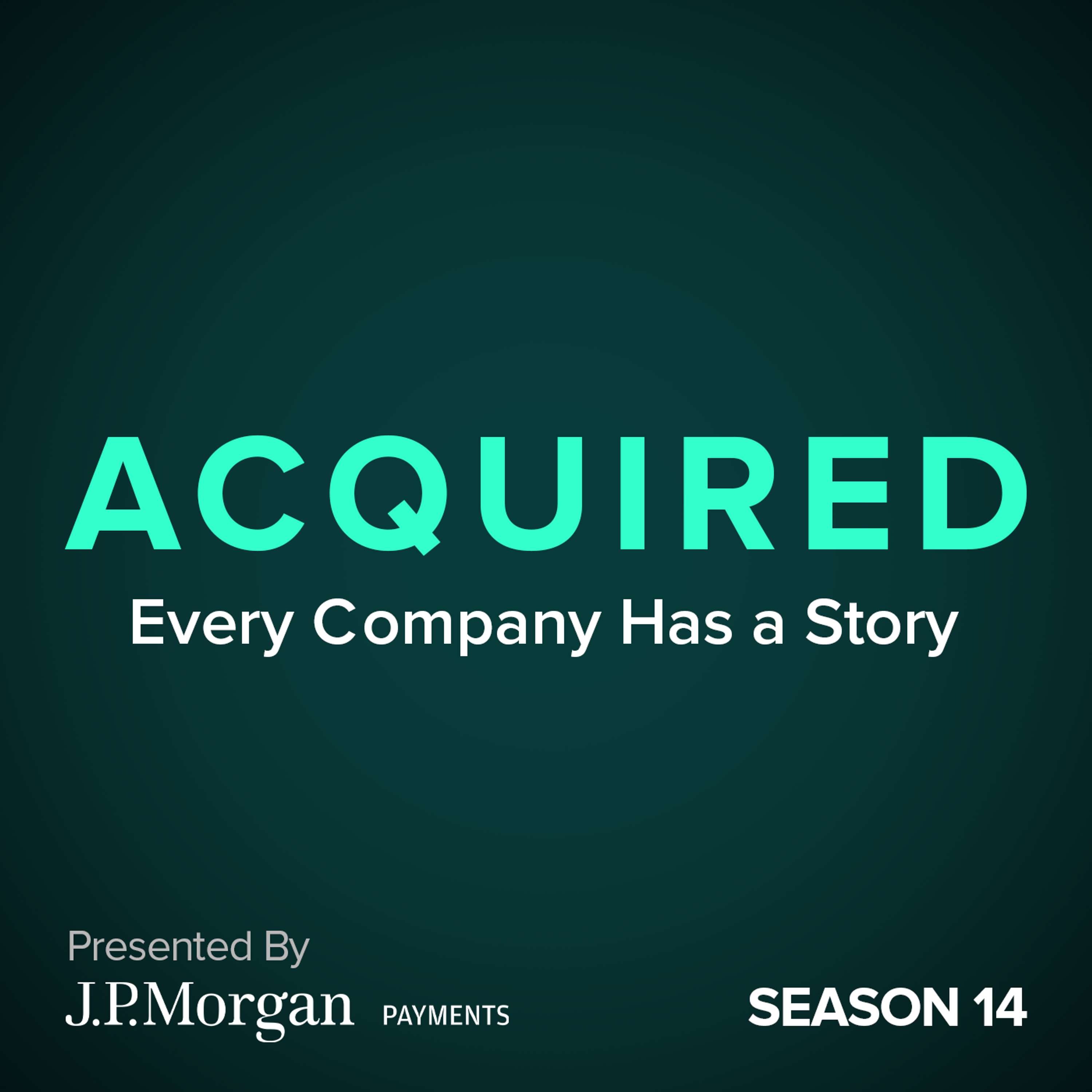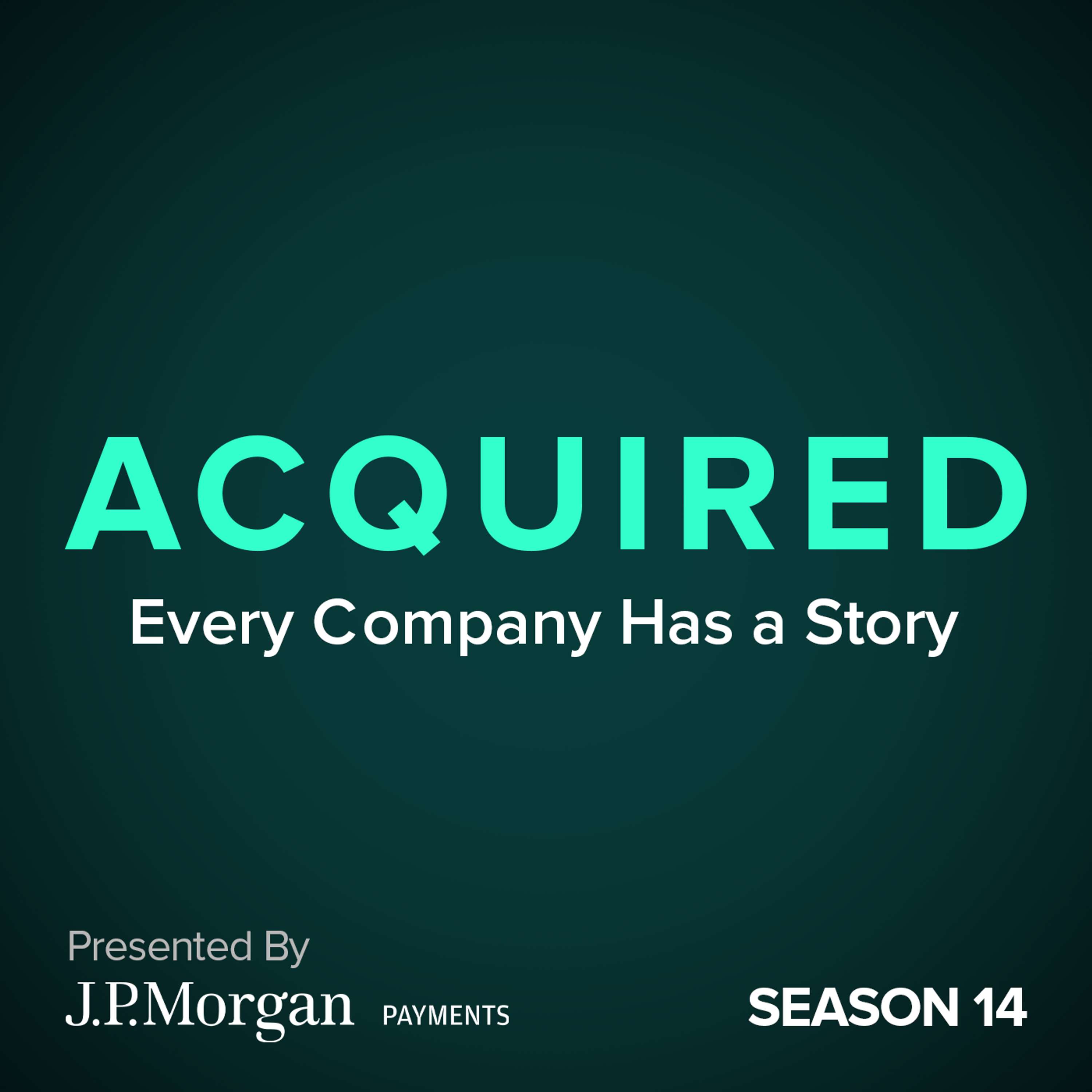
January 22, 2024 • 3hr 44min
Novo Nordisk (Ozempic)
Acquired

Key Takeaways
- Novo Nordisk is a 100+ year old Danish pharmaceutical company that has transitioned from being primarily an insulin provider to becoming the dominant player in the GLP-1 agonist drug market for diabetes and obesity treatment.
- The company's unique ownership structure, with a non-profit foundation controlling the majority of voting shares, has enabled it to maintain a long-term focus on innovation and public health impact rather than short-term profits.
- Novo Nordisk's development of drugs like Ozempic and Wegovy has created a new multi-billion dollar market for GLP-1 agonists, disrupting the insulin market it previously dominated.
- The US healthcare system's complex web of middlemen, regulations, and misaligned incentives has made it challenging for innovative drugs to reach patients in a cost-effective manner.
- Novo Nordisk's focus, long-term orientation, and ability to compound innovation over decades have allowed it to become one of the most profitable and valuable pharmaceutical companies in the world.
Introduction
This episode of Acquired dives deep into the history and rise of Novo Nordisk, a Danish pharmaceutical company that has become Europe's largest company and a global leader in diabetes and obesity treatments. The hosts, Ben Gilbert and David Rosenthal, trace Novo Nordisk's origins back to the 1920s discovery of insulin, and follow the company's evolution over the past century as it has navigated industry changes, rivalries, and breakthroughs.
The key focus of the episode is on Novo Nordisk's development of GLP-1 agonist drugs like Ozempic and Wegovy, which have disrupted the insulin market and created a new multi-billion dollar opportunity in treating metabolic disorders. The hosts also explore the complex dynamics of the US healthcare system, the challenges of drug development and commercialization, and Novo Nordisk's unique ownership structure that has enabled its long-term focus.
Topics Discussed
The Discovery of Insulin and Early Insulin Production (00:00 - 16:00)
The episode begins by recounting the 1921 discovery of insulin by a team at the University of Toronto, led by Frederick Banting and Charles Best. This breakthrough was a game-changer for treating type 1 diabetes, which had previously been a death sentence. The hosts explain how Eli Lilly, an American pharmaceutical company, licensed the production rights from the University of Toronto and pioneered the mass production of insulin using cow and pig pancreases.
The story then shifts to Denmark, where Nobel Prize winner August Krogh and his wife Marie, who had been diagnosed with diabetes, worked to bring insulin production to Scandinavia. This led to the founding of Nordisk Insulin Laboratorium, which would eventually become Novo Nordisk.
The Rivalry Between Nordisk and Novo (16:00 - 37:00)
The hosts detail the bitter rivalry that emerged between Nordisk and a competing Danish company, Novo, founded by two brothers who were fired from Nordisk. This competition drove innovation, with the companies developing improved insulin formulations like protamine insulin and lente insulin.
The rivalry continued even during World War II, when Novo became the official Nazi-sanctioned insulin provider for occupied Europe, while Nordisk's operations were largely shut down. After the war, Novo emerged as the larger of the two companies, but they eventually merged in 1989 to form the modern Novo Nordisk.
The Rise of GLP-1 Agonists (37:00 - 1:23:00)
The episode then focuses on Novo Nordisk's development of GLP-1 agonist drugs, a new class of medications that stimulate the release of glucagon-like peptide-1, a hormone that regulates insulin production and appetite. This breakthrough was spearheaded by Lotte Bjerre Knudsen, a scientist who persisted for years despite skepticism from Novo Nordisk's management.
The hosts explain how Novo Nordisk's GLP-1 agonist drugs, such as Ozempic and Wegovy, have disrupted the insulin market and created a new multi-billion dollar opportunity in treating diabetes and obesity. They also discuss the challenges of getting these drugs approved and adopted, including the historical stigma around weight loss medications and the complex dynamics of the US healthcare system.
The Novo Nordisk Foundation and Corporate Structure (1:23:00 - 1:59:00)
A key aspect of Novo Nordisk's story is its unique ownership structure, with a non-profit foundation controlling the majority of the company's voting shares. The hosts explore how this foundation-based model has enabled Novo Nordisk to maintain a long-term focus on innovation and public health impact, rather than short-term profits.
They also delve into the complex dynamics of the US healthcare system, including the role of middlemen like pharmacy benefit managers (PBMs), the misalignment of incentives, and the challenges of getting innovative drugs to patients in a cost-effective manner.
Analysis and Playbook (1:59:00 - 2:59:00)
In the final section, the hosts analyze Novo Nordisk's competitive positioning and the factors that have contributed to its success, including its focus, long-term orientation, and ability to compound innovation over decades.
They also discuss the broader challenges and dynamics of the pharmaceutical industry, including the high costs of drug development, the industry's venture-like nature, and the question of whether pharmaceutical companies are over-earning or providing sufficient value to society.
Conclusion
The Acquired episode on Novo Nordisk provides a comprehensive and fascinating look at the history, innovation, and unique structure of this Danish pharmaceutical giant. By tracing the company's evolution from its insulin origins to its dominance in the GLP-1 agonist market, the hosts offer valuable insights into the complexities of the healthcare industry, the importance of long-term thinking, and the potential for mission-driven companies to create outsized impact.
The episode serves as a powerful case study on the importance of focus, patience, and a willingness to disrupt oneself in the pursuit of breakthrough innovations. Novo Nordisk's story is a testament to the power of persistence, the value of a long-term perspective, and the potential for companies to create both financial and societal value.









